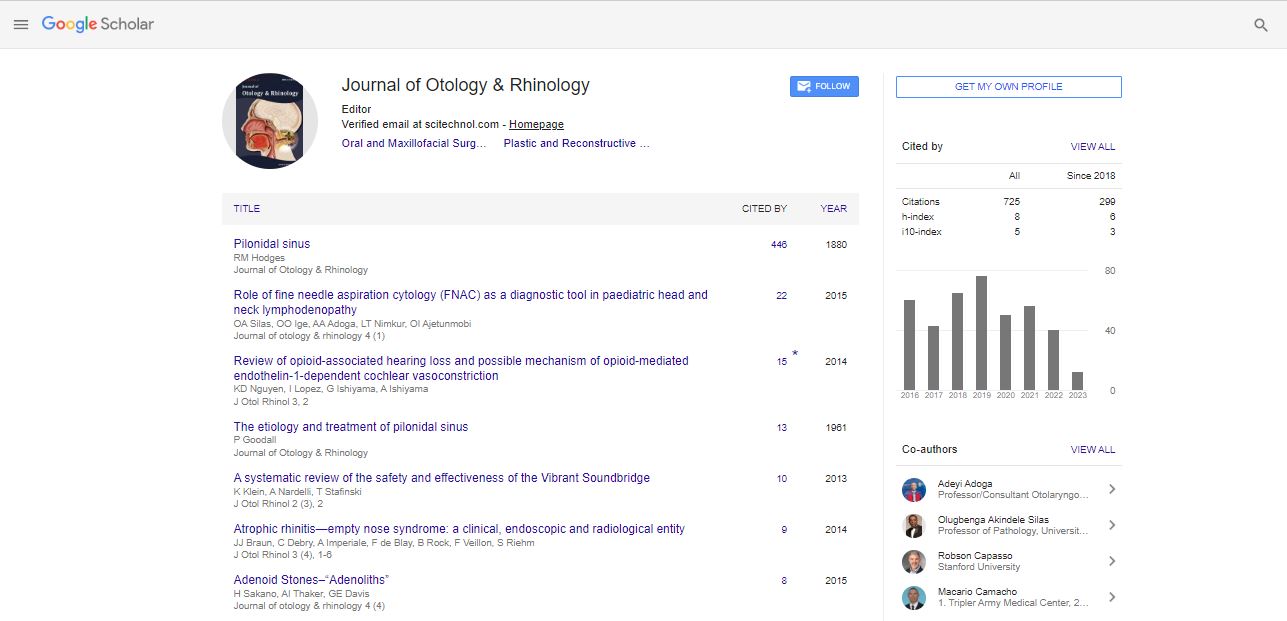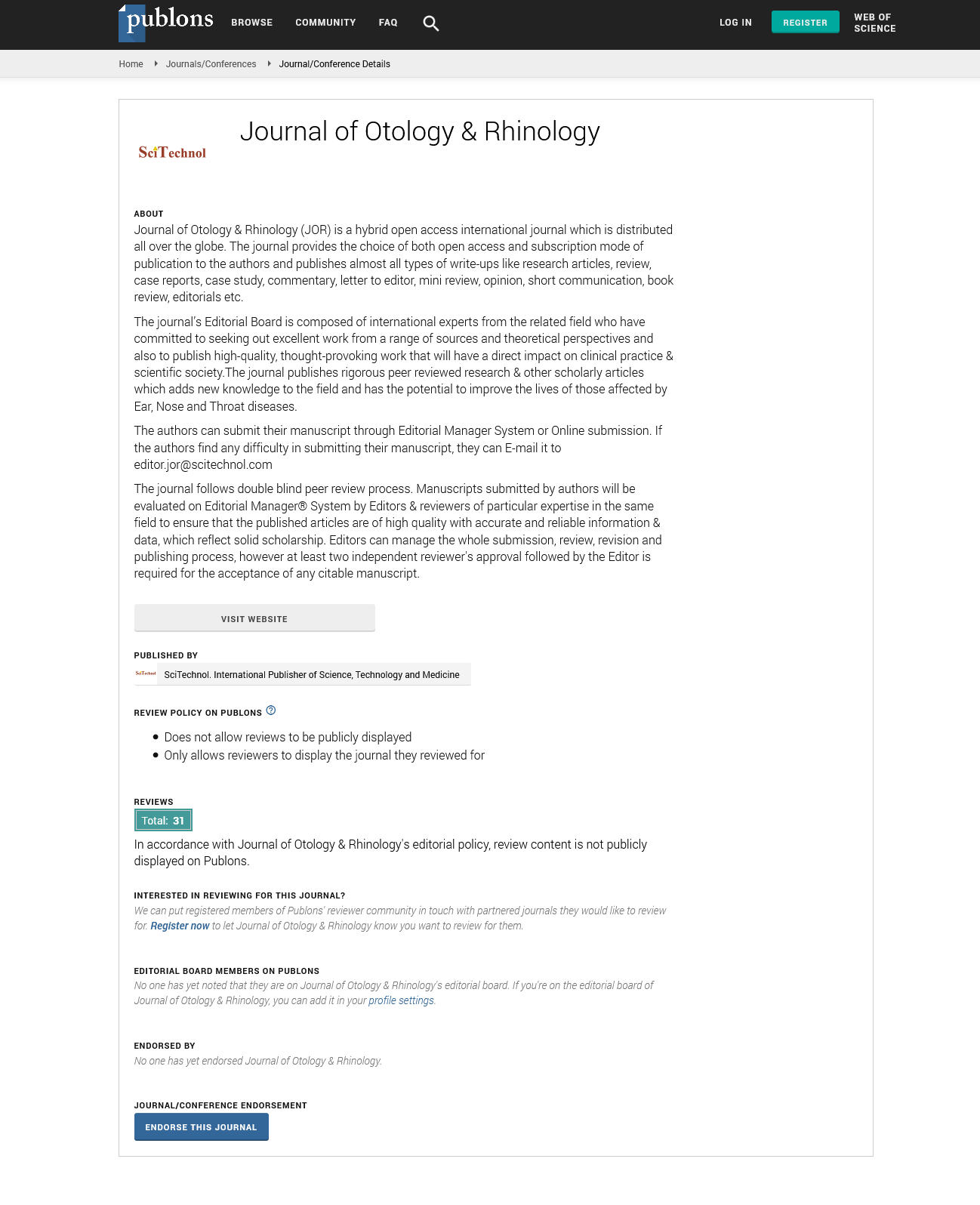Ethnic Rhinoplasties: A 16 year experience
George J. Bitar
Bitar Cosmetic Surgery Institute, USA
: J Otol Rhinol
Abstract
Introduction: Performing ethnic rhinoplasties successfully requires many skills. Technical expertise is must. A plastic surgeon should have the skill-set to perform a rhinoplasty and accept to perform such surgeries commensurate with his or her level of expertise, resulting in naturally looking results. Various ethnic rhinoplasties include Caucasian nose (European white), Hispanic nose, Middle Eastern nose (Arabic, Turkish, North African, and Persian Descent), Asian Nose (Chinese, Japanese, Filipino, Korean, and Indonesian) and African nose. Methods: Non-surgical algorithm: Nonsurgical or filler rhinoplasty is becoming more popular due to safe and readily available fillers. Injectables are commonly done on all nose types with calcium based fillers for primary noses or when more volume needs to be achieved, and hyaluronic acid fillers for primary noses that need contour changes or secondary noses with concern for blood supply. Surgical algorithm: A nose should be thought of as a pyramid and should look good from all angles after a rhinoplasty is completed. My algorithm for rhinoplasty will be discussed. Conclusion: Ethnic rhinoplasty is a precise and demanding operation due to many factors discussed in this talk. The upside is that if all the considerations are addressed, then our patients will be very happy and have noses that match their identity and sense of beauty. Recent Publications 1. Bitar G J, Osunsade O and Devabhaktuni A (2011) Non-surgical rhinoplasty with Radiesse. Advanced Surgical Facial Rejuvenation 625-643. 2. Branford O A, Kamali P, Rohrich R J, et al. (2016) #Plastic Surgery. Plast Reconstr Surg. 138(6):1354-1365 3. Daniel R (2007) The Hispanic Nose. Dallas Rhinoplasty Second Edition, Gunter et al. 1197-1212.
Biography
George J. Bitar, MD, FACS is an award-winning, the medical director, fellowship-trained, board certified plastic surgeon and has performed over 5,000 cosmetic facial and body procedures. Dr. Bitar obtained his medical degree from the George Washington University School of Medicine in Washington, DC, where he now serves as an Assistant Clinical Professor. He then finished a general surgery residency at the Albert Einstein Medical Center in Philadelphia. His plastic surgery residency was completed at the University of Virginia Plastic Surgery Program, which provided him with a strong foundation in reconstructive surgery, for people injured in accidents or who have facial deformities or severe burns, and in hand surgery and microsurgery.
E-mail: georgebitar@bitarinstitute.com
 Spanish
Spanish  Chinese
Chinese  Russian
Russian  German
German  French
French  Japanese
Japanese  Portuguese
Portuguese  Hindi
Hindi 


